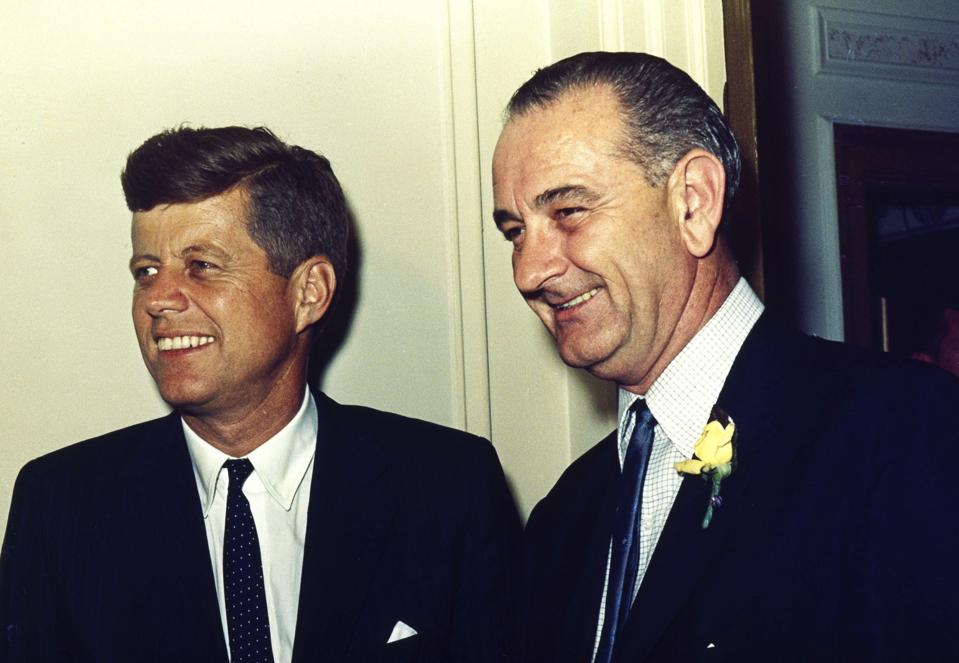On November 22, many Americans will pause to recall the life, and tragic death, of President John F. Kennedy sixty years ago—as well they should. Yet very few will pause to remember the subsequent efforts of Vice President Lyndon B. Johnson to assure the peaceful transfer of presidential power—but perhaps they should.
For the seven weeks from the assassination to Johnson’s State of the Union speech represent one of least recognized but most important political periods in American history. An extraordinary period, in fact, in which the mantel of executive authority was seamlessly and peacefully transferred by constitutional means, following the brutal assassination of a sitting president. It is a period which is notably relevant to today’s hyperpartisan political environment.
The estimable Robert Caro has described it as “…a remarkable demonstration of the passage of power, immense power-of its passing, in an instant, from one hand to another, and of its wielding by that new hand, in the first weeks after it closed on that power, with history-changing effectiveness.”
For Johnson’s challenges in that seven-week period were more than could have been expected. They were more than the shock and grief of a nation that had come to revere its fallen leader. They were more than the uncertainty and potential instability of the government. They were more than the dangerous global uncertainty that automatically accompanied the assassination of the President of the United States. And they were more than the pressures of the many important legislative and policy initiatives laid fallow by the president’s death.
For the challenges included the competing public perceptions of the engaging Kennedy of Camelot and the crude wheeler-dealer from the Texas Hill Country. They included the suspicion of Johnson by the Kennedy family and the circumspection of Johnson by the Kennedy cabinet— the so called “Best and the Brightest”. They included a burgeoning crisis in an unfamiliar place called Vietnam. And they included the public’s legitimate fears over the mysteries of the assassination-and the subsequent murder of the assassin.
Johnson overcame these challenges through determined effort, respect for the fallen president, extraordinary humility and a skillful application of legislative mastery. He assured the continuity of government, retained the loyalty of the Kennedy cabinet, established a presidential commission on the assassination, forged critical relationships with foreign leaders and moved forward critical tax reform. All within seven short weeks’ time. And it was also during this short period that he implemented the political strategy that paved the way for iconic civil rights legislation.
Indeed, Johnson not only preserved the national equilibrium during the days and weeks of debilitating crisis; he also took the critical steps towards ‘writing into the books of law’ a new social compact for the country.
It is true that Johnson’s triumphs of transition and his later Great Society efforts were ultimately overshadowed by the social and foreign policy tragedies that subsequently doomed his presidency. Those triumphs and efforts were unable to balance the political ledger against the weight of the great national cost of his following misjudgments.
Yet his transition achievements merit public remembrance for very current and pressing reasons. For we now live in a time in which the validity of election results are subject to increasing challenge, and the orderly succession of elected offices can no longer be assured. The weakening of these foundational processes stand in stark contrast to the precedence of normality that Johnson’s efforts established. Amidst an unimaginable whirlwind of grief, shock and uncertainty, a presidential transition occurred peacefully and without question.
It is in that context in which Johnson’s extraordinary efforts to assure an effective transition of power deserve to be remembered, and offer food for public reflection. As the biographer Caro notes, “[I]n the life of Lyndon Baines Johnson, the period stands out as different from the rest, as perhaps that life’s finest moment, as a moment not only masterful but, in a way, heroic.”
And most certainly historic.

